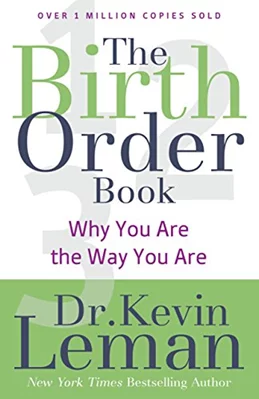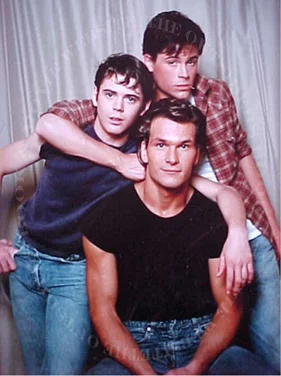Leveraging Birth Order in a Family-Run Business

Check out this video blog discussing Birth Order for future 2nd Generation Business Leaders.
Transitioning any business from the original founder to 2nd generation is no easy task. The process is filled with challenges and uncertainties that bring a high probability of mistakes or even failure. Nonetheless, to ensure a successful transition to the 2nd generation, I believe original founder(s) would benefit from understanding birth order as it relates to the new leaders running the business. It is very common for founders to mold some or all their children to run the business, but the importance of birth order is often overlooked or downplayed. Rather than taking this for granted, founders can use their children’s birth order to their advantage and possibly a competitive advantage.
Planning a Successful Transition
I wrote this blog to specifically address the original founder(s) of an SMB family-run enterprise that is working to build a legacy that will last generations. If you are planning a short or long-term transition to your children, have you considered how birth order impacts the leadership team and dynamics within the ownership structure? Most owners are so busy with their life or business they never slow down to think about it.
Additionally, when the original founder, aka boss, retires to spends less time in the business, the natural family dynamics will take over. It is inevitable.
Some questions to consider:
- How many “children” will be involved in the ownership and/or management of the organization?
- If there are multiple founders and children, this will add complexity
- What unique personality traits does each child possess based on birth order?
- Oldest, middle and youngest all think and behave differently based on years of behavioral traits (Only children too!)
- A personality assessment can easily be done for each individual over and above your parental perspective
- Are there multiple future leaders and family employees like cousins/Uncles/Aunts, etc.? All of this plays a big part
- How do you address sibling power rankings or unspoken hierarchies? How can this impact the leadership team? How do you address this when it goes back to childhood behaviors?
- Which personality fits best for the job role they will individually have outside of ownership?
- As you know CEO, is very different from COO, CFO or top sales producer. This decision should be strategic and what is best for the business and family health
- Too much responsibility to the wrong son or daughter can devastate a company
The Importance of Birth Order
Birth order is a subject we often gloss over in day-to-day life but especially in a business atmosphere. Recently, I came across a very well-written book by Dr. Kevin Leman on the subject, and it is just filled with golden nuggets. The book sheds light on birth order in general and goes deep on each parental and child trait based on when you were born.
Chapter 10, Dr. Leman calls it “getting behind their eyes”. One of the ways to do this is to understand someone’s birth order.
Oldest, middle, youngest, only child, etc., have common characteristics and traits based on patterns and lots of data of human behavior. If you are in a family run business, take a moment to think about the family dynamics:

First Borns, in general: usually most practical to lead but there are expectations (remember Fredo from Godfather)
- Usually put in leadership roles given their duties growing up and being the oldest
- Used to looking out for younger siblings (leadership traits)
- Natural leaders
- Usually complain their parents were hard on them (JK…sort of)
- Think of Patrick Swayze in “The Outsiders” – natural leader!

Middle Child: wonderful for HR
- Mediator or crowd-pleaser in social settings
- Sometimes feel overshadowed by other siblings (can feel neglectful)
- Independent and loyal
- Peacekeeper
- Wants fairness
Youngest Child: Let them sell and bring in the business!
- Usually in sales, as a child could be found manipulating others to get their way
- Known for disturbing the peace and being a class clown
- Tend to be able to charm and disarm better than older borns can
- Think of Macaulay Culkin in Home Alone


Youngest Child: Let them sell and bring in the business!
- Usually in sales, as a child could be found manipulating others to get their way
- Known for disturbing the peace and being a class clown
- Tend to be able to charm and disarm better than older borns can
- Think of Macaulay Culkin in Home Alone
Now, while the actors above are an exaggerated version of birth order, there is some truth to them. It is important if you are in a family run operation, no matter your role, to be aware of this structure.
Birth Order in Business
It’s easy to imagine how birth order impacts a family – picture your own childhood kitchen table or home growing up. How each personality fits into a business structure, though, can be tricky. For the sake of our conversation, I believe it is important to understand birth order as it relates to family health and making the business prosper and grow.
As a founder preparing to transition your company, you should first take into consideration your own birth order and resulting management style. Birth order doesn’t just apply to your children – it influences your personality as well.
For the 2nd generation ownership with multiple family members (3+), there are a few questions you need to ask yourself.
- Is one child being given real control or is the responsibility being shared?
- Who will be taking over the C level roles for each department? If no one is qualified, of course, who are you bringing in?
- Use your understanding of birth order to ensure that your family members are put in a position to succeed
- Few things are uglier to see than watching a salesperson try to organize accounting department or an operations person leading a sales presentation
The oldest is the most practical choice to assume the most influence, decision making, and responsibility in the company, even with equal equity partnerships among siblings. Sometimes, this is a great fit, and the whole organization benefits. In other cases, though, this can cause conflict among siblings, the family and the business. If the oldest child is given this great responsibility to lead a company, it is important they are ready to lead. You need to make sure that your oldest has the innate and learned skills to lead and not just provide this great responsibility due to age.
Building a Legacy
None of us can change our birth order but we can all use it as an advantage for the business and family. I believe it is important for anyone working in a family-run business to understand your specific birth order and its impact on the organization, its profitability, and the overall happiness of the family.
Thank you,
– Vincent Finaldi
I love hearing about other family businesses. Feel free to connect with me below.

Check out this video blog discussing Birth Order for future 2nd Generation Business Leaders.



